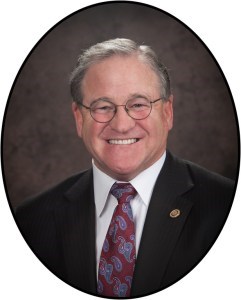A new year brings new beginnings, new challenges, and new goals—many of which revolve around achieving a happier, more successful financial year. So to achieve that financial wisdom, here 4 expert tips from local Financial Advisors and CPAs.
1. Getting a divorce? Secure your finances.
The new year means planning for what will come over the next 12 months. For some, this means considering the possibility that a major life change may happen—such as a divorce. There are steps a person can take to prepare financially if a divorce or other major life change happens.
One of my favorite sayings from my father is, “You’ve got to know where you are to know where you’re going.” So, the first step is to take inventory of your current financial situation. Gather the details for all of your bank accounts, retirement accounts, assets, and of course, debts on hand, including the balance or value of each. For credit card debts, determine which accounts are in which spouse’s name, what the interest rates are, whether there is an annual fee, and how long the account has been open.
Second, gather documents for each account, asset or debt on the list. This will help determine if the debt increases dramatically during the contemplation period prior to the divorce being filed. It will also assist in tracing assets or money if it is moved.
The third step in planning for a divorce is to prepare a budget in anticipation for the new life situation. Compare that to the current cash flow budget. When spouses separate, the combined income that supported the family in one household will have to spread over two households. Making sure that you can meet your new anticipated expenses based on your cash flow without dipping into reserves is important to your financial security moving forward.
 EXPERT: Michelle May O’Neil
EXPERT: Michelle May O’Neil
Attorney O’Neil Wysocki Family Law
Michelle May O’Neil, a 24-year board-certified family law specialist, brings her extensive experience to bear when representing individuals in divorce and family law litigation. Described as a “lethal combination of sweet-and-salty,” she is relentless in pursuit of a client’s goals.
5323 Spring Valley Rd., Ste. 150 Dallas, TX 75254
972.852.8000 | owlawyers.com | DallasTxDivorce.com
2. Starting a business? Have a plan.
It’s a new year. It’s a new opportunity. Are you thinking of starting or expanding your business? Third Coast Bank specializes in owner-occupied and investment commercial real estate (construction and permanent financing), commercial/industrial and executive/professional financing options, including revolving lines of credit, equipment and asset financing.
Starting a business: First, speak with a commercial lender to find out what works and what doesn’t. Second, ask yourself, what can you do better to be more competitive than the same type of business next door. Review how much of the market you have. How many businesses are offering the same service, the same product? Network with other community business owners. Contribute and participate in community projects. Devise an ongoing plan to keep in touch with your customers both current and past.
Applying for a commercial loan: First, speak with a commercial lender to gain insight on the different types of loans available…from small lines of credit to building and equipment loans. Second, ensure that the business plan is complete and thorough. Banks will typically look at: type of loan, the amount of the loan request, the business financials, the amount of time the company has been in business, and the target market. One of the most crucial areas reviewed is how will the business repay the loan. Additionally, how much equity does the business have to cover the loan. All business owners should keep a complete and thorough business plan and update it as the business grows.
 EXPERT: Kelly Palmer
EXPERT: Kelly Palmer
Senior Vice President, Dallas Group Leader
Kelly Palmer has been a commercial banker for 32 years, 15 years in the Plano market. Kelly is a relationship-oriented lender and makes every effort to assure the client’s needs are met.
1201 W. 15th St., Ste 100 Plano, TX 75075
972.265.0051 | thirdcoastbank.com
3. Retiring? Invest in your future.
The Bipartisan Budget Act of 2015 put some sweeping changes into how retirees may elect to receive Social Security benefits. While the effective date of the legislation began for some provisions on November 2, it is important to know how the remaining provisions will impact you. There are some steps you can take now to ensure the budget act won’t have as significant of an effect on your retirement.
Take advantage of your employer-sponsored retirement plan. At a minimum, contribute enough to earn your employer’s match. Every time your salary increases, boost your contributions. Employer-sponsored plans offer a range of investment options, plus tax-deferred earnings. Another perk: Because you contribute pre-tax dollars to your plan, the more you put in, the lower your taxable income. In 2015, you can put in up to $18,000 to your 401(k), or $24,000 if you’re 50 or older.
“Max out” your IRA. A traditional IRA grows on a tax-deferred basis, while Roth IRA earnings grow tax-free, provided you don’t take withdrawals until you’re at least 59-1/2, and you’ve had your account at least five years. In 2015, you can put in up to $5,500 to an IRA, or $6,500 if you’re 50 or older.
Invest for growth. Whether you’re investing in a 401(k), IRA or a taxable brokerage account, you need to devote a reasonable percentage of your dollars to growth-oriented investments, specifically stocks, stock-based mutual funds and other vehicles containing stocks. You can lessen your overall risk level through diversification.
 EXPERT: James Madden
EXPERT: James Madden
Vice President/Financial Advisor, RBC Wealth Management
James Madden has been helping clients manage their investments since 1997. Prior to joining RBC Wealth Management, James was a Second Vice President at Smith Barney.
4965 Preston Park Blvd., Ste. 300 Plano, TX 75093
972.612.4258 | jaymadden.com
[This article is provided by Jay Madden, a Financial Advisor at RBC Wealth Management. The information included in this article is not intended to be used as the primary basis for making investment decisions. RBC Wealth Management does not endorse this organization or publication. Consult your investment professional for additional information and guidance.
RBC Wealth Management, a division of RBC Capital Markets, LLC, Member NYSE/FINRA/SIPC.]
4. Buying real estate? Know the rules.
When buying a home, who has the right to select the title company? Most sellers and buyers have no strong ties to a particular company, however many brokers and agents do. The Real Estate Settlement & Procedures Act (RESPA) controls who can and cannot direct the closing.
While REPA permits the lender to require a closing at a particular title company, this rarely happens because real estate agents have a strong preference for where a transaction closes, and since those same agents often refer mortgage business to lenders, lenders want to stay out of it.
According to Section 9 of the RESPA, a seller is prohibited from requiring a buyer to purchase title insurance from a particular title company. If the seller violates this law, he or she is liable to the buyer in an amount equal to three times all charges made for such title insurance. However, if the seller pays 100% of all title insurance, then the seller can require use of a particular title insurance company.
It is important to shop around for the best service. Ask your friends and family for recommendations. Then, call different title companies and compare their rates for insurance, closing costs and other fees. Rates are based on the property’s sale value. The Texas Department of Insurance sets title insurance premium rates; you pay a title policy premium only once at the closing of the sale. Title agents then add extra charges for things such as tax certificates and escrow fees, recording fees, and delivery expenses.
 EXPERT: Samuel A. Mills
EXPERT: Samuel A. Mills
Executive Vice President & General Counsel, BNT of Texas, LLC
Sam’s vast experience in nearly 20 years of practice includes mergers and acquisitions; the negotiation and structuring of contracts, business ventures, partnerships, and LLC agreements; representing health care providers and physician groups in medical office lease transactions; and all aspects of commercial real estate law.
Parkway Centre III
2745 Dallas Parkway, Suite 140
Plano, Texas 75093
214.505.5878 | [email protected] | bnttexas.com




